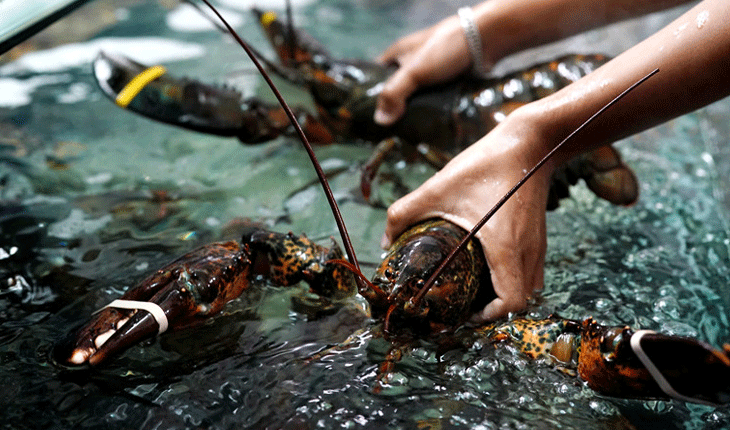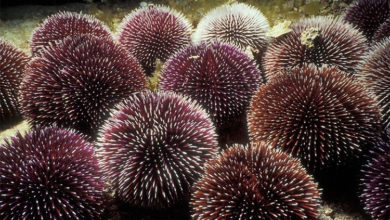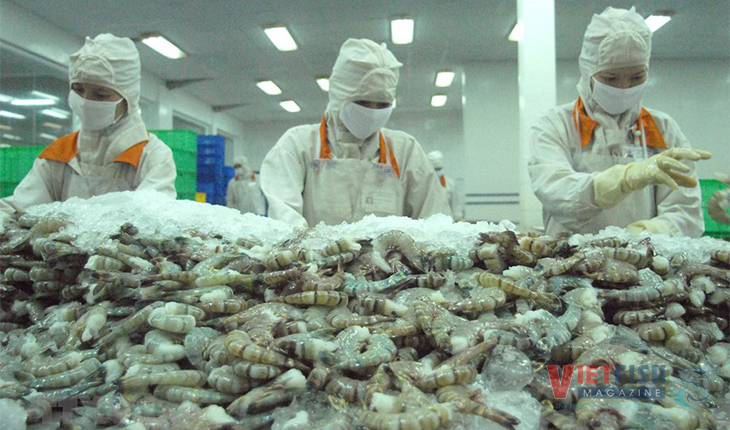Smuggled lobster juveniles pose serious threat to Vietnam’s aquaculture
The illegal import of lobster juveniles into Vietnam is on the rise, particularly in central coastal provinces such as Khanh Hoa, Phu Yen, and Binh Dinh. This growing trend threatens the economic viability of domestic hatcheries, increases the risk of disease outbreaks, and poses serious harm to marine ecosystems.
Experts warn that lobsters are a high-value aquaculture product, generating substantial income for farmers and contributing significantly to Vietnam’s agricultural export revenues. However, the illicit trade of lobster juveniles by sea and air from neighboring countries is creating major challenges for regulators attempting to ensure quality control and biosecurity in the industry.

Many of these smuggled juveniles bypass quarantine and quality checks. Lacking oversight, they often carry pathogens and show poor resistance to disease. This increases the likelihood of spreading dangerous viruses like white spot disease and acute hepatopancreatic necrosis, threatening not just farmed stocks but also the surrounding marine environment.
One notable case occurred on April 3, 2024, when customs officers at Da Nang International Airport discovered a passenger arriving from Singapore carrying two suitcases containing approximately 60,000 live juvenile lobsters, valued at over VND 5 billion. The lobsters were hidden to evade inspection.
In response to the growing threat, the Ministry of Agriculture and Rural Development (now the Ministry of Agriculture and Environment) issued a directive in September 2024 to strengthen inspections at airports, border gates, unofficial crossings, rivers, and coastal entry points. Local authorities were urged to detect and strictly handle all cases of illegal lobster seed imports.
The People’s Committee of Khanh Hoa province has since ordered relevant agencies and district-level governments to intensify efforts to prevent smuggling. Local officials are now required to implement central government directives and raise awareness among coastal communities about the risks associated with low-quality imported stock.
The province has also instructed enforcement teams to step up checks at airports, ports, quarantine zones, and lobster farms. Agencies are expected to work closely together to prevent untraceable juveniles from entering and spreading within the farming system.
Beyond legal violations, lobster seed smuggling creates unfair competition. Legitimate hatcheries comply with health and quarantine protocols, investing heavily in modern technologies. However, they struggle to compete with cheap, unregulated imports flooding the market. This discourages long-term, quality-focused investment.
Aquaculture experts warn that without stronger control, Vietnam’s lobster sector could suffer a crisis similar to those seen in pangasius and shrimp farming, where disease and declining broodstock quality severely impacted production.
Despite the risks, many farmers continue to favor cheap, unverified lobster seed—driven by limited awareness and high upfront investment pressures. This highlights the urgent need for stronger communication and education campaigns to promote the use of certified, traceable stock.
As global markets demand stricter traceability and biosecurity standards, regulating juvenile imports is critical to the long-term sustainability of Vietnam’s lobster industry. Achieving this goal will require firm action from authorities and close collaboration with farmers and businesses alike.
Stopping illegal lobster seed imports is not just about enforcement, it’s a strategic move to safeguard the integrity, competitiveness, and international reputation of Vietnamese lobster.
VFM






